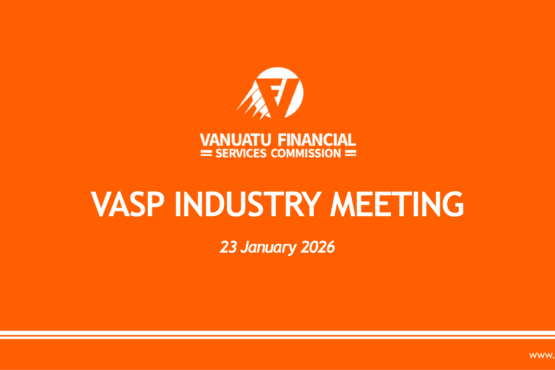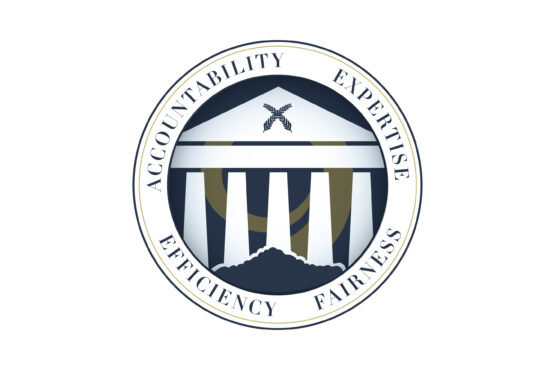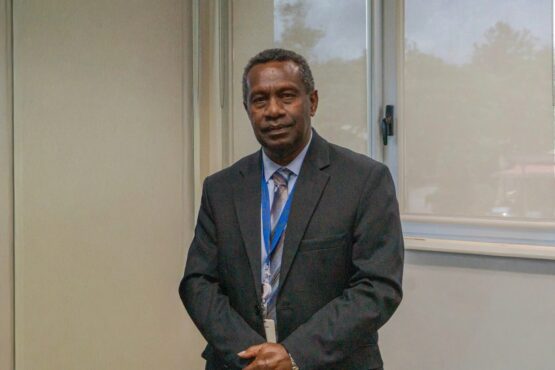At a recent symposium, Vanuatu’s budding fintech industry was widely hailed as a strategic sector for the economy. While there are still a few challenges, all participants agreed that the opportunities promise a bright future for the country’s youth.
The Symposium “Virtual assets: Navigating the legal framework,” hosted by the Vanuatu Financial Services Commission (VFSC) on June 22, charted a positive future for the country. Attended by the Honourable John Salong Damasing, Minister of Finance and Economic Management, the event was the first time Vanuatu brokers, regulators, government officials and other stakeholders met since the amended Financial Dealers Licensing Act came into effect 18 months ago, ensuring that the jurisdiction meets global compliance standards.
The new law opened the jurisdiction to trading digital assets, such as cryptocurrencies and other virtual representations of assets, collectively called “virtual assets” in the parlance of global financial regulators, including the Financial Action Task Force (FATF).
It’s no surprise then that the keynote speaker was Loretta Joseph, an Australian expert who has been advising the VFSC on the matter since the new law was passed in 2021. Joseph is also an advisor to the Commonwealth Secretariat on Virtual Assets.
Commonwealth nations are leading the way
Joseph explained that Vanuatu can join other members of the Commonwealth in a “harmonious, globalized framework” that unites “a third of the world’s population.” She thinks this group of nations should lead the way on virtual assets, since “it won’t come from the U.S. or the E.U. anytime soon.”
“We’re lucky to live in an age when a new asset class is born,” she said. “This asset class has become very mainstream and no country should ignore it, no matter the size of its jurisdiction. But we don’t want to facilitate financial crime, so we need strong licensing requirements and robust compliance models. We can’t just do whatever we want. We’re writing a common law for the entire Commonwealth that will give the industry legal clarity and tell countries exactly what they can and cannot do.”
A growing pool of Ni-Vanuatu talent
Since that framework is still in the works, no Vanuatu Financial Dealer Licence (FDL) has been granted yet for virtual assets, which fall under Class D. The 60 applicants who have successfully obtained a FDL so far under the updated rules are typically forex and commodities brokers, who fall under Class A, B and C (more details here).
They are already providing fresh employment opportunities for Ni-Vanuatu, notes Joshua Tari Nako, manager at the VFSC Supervision Department: “These companies are making a huge difference here. They’re training local people on their own dime. They’re creating a growing pool of Ni-Vanuatu who understand how to operate in financial markets. They’re generating revenue for the government and they’re instilling international confidence in our financial system.”
Tari Nako announced that a new expert will arrive later this year to put the finishing touches on the jurisdiction’s risk-assessment framework. While Joseph works on the virtual asset side, Rick McDonell, a fellow Aussie and former Executive Secretary of the FATF, will help prepare Vanuatu for the upcoming on-site inspection by the Asia-Pacific Group on Money Laundering.
Reaching out to rural Vanuatu
Some discussions touched on more domestic issues. One panel addressed the untapped potential of the VFSC’s Personal Property Security Registry (PPSR). It allows any security interest to be registered for just 3000 Vatu ($25 USD) and accessed for free. While many types of businesses can benefit from the service by receiving better legal protection than with contracts or sales agreements, few are aware it even exists, especially in rural areas. At the moment, it’s mostly used by banks, which is underwhelming considering its potential.
Another panel touched on the VFSC’s efforts to deploy mobile registration in rural communities for key services such as business name registrations. The regulator should also have an office in every province of the country by next year. The Honourable John Salong Damasing spoke about the upcoming digital national payment system backed by the Reserve Bank, which will bring “real-time, efficient payments” and be particularly helpful “if the system can be extended to include cross-border payments and remittances across the Pacific region.”
Unresolved issues remain
The exchanges then turned to more short-term, pressing issues when four brokers shared their experience in applying the new rules, especially about establishing a physical presence and economic substance in the country. While Titan FX has had its headquarters in Port Vila for many years and now employs a relatively large local team, newcomers Axi, Deriv and TMGM have faced some hurdles while setting up their office in recent months.
Axi Chief Risk Officer Simon Hodgkiss explained that his company is committed to investing heavily in Vanuatu but local staffing is still difficult, so he had to bring in support staff from Australia. But obtaining visas, permits and licences have been a real challenge. His local manager, Dephney Sumsum, noted that since the Vanuatu Investment Promotion Authority (VIPA) rejected their application, they couldn’t get a local business licence or even utilities at their office. “The various stakeholders aren’t working in harmony and it has really held us back,” she said.
Dominique Dabu, the local director for Deriv – who has experience at the company’s Dubai office – said that they’d been “struggling for the past three months” and “would like to speed up the process.”
Getting local banks onboard
Several panelists noted one major impediment: their inability to open accounts at local banks for their local companies, as is now required.
James Hudson of Titan FX advised his colleagues to clarify that the beneficial owners of all their entities are the same people which should put local banks at ease. An ex-banker himself, he said he understands why these institutions would be wary of putting their general clientele at risk by associating with “high-risk” businesses. If they can’t be convinced, he suggested, the best course of action for the industry may very well be to create its own local bank.
“We could ask the Reserve Bank for a limited domestic licence to bank the FDL sector without putting the general community of depositors at risk, which is what the other banks are worried about,” said Hudson. “It’s not our core business, but we could do it and make payments in and out of Vanuatu quite easily through alternative providers. After all, we’re experts at finding the payment path of least resistance.”
Hudson also mentioned the possibility of creating a virtual asset exchange under a Class D licence and using a Vatu-backed “stablecoin” to get funds in and out of the country. “This would do away with all dependency on corresponding overseas banks plus EU watchlists,” he added.
Is Vanuatu the next Cyprus?
Besides these operational hurdles, everybody agreed on the same vision for the future: one where the financial industry becomes a strategic part of the economy and uplifts the entire community.
“Everyone recognizes that fintech is an opportunity for our kids,” said Sumsum. “We’re opening the doors to better career opportunities so our people can stay in the country and enjoy better wages.”
Donna Titi, head of compliance at Titan FX, agrees. She believes that the new regulatory regime will “spur more investment in Vanuatu, create jobs, stimulate further development and support education and training.”
Johnny Wilson, the local manager for TMGM, spoke about the transfer of capital intellect. “Local talent will learn from the expertise of foreign brokers who open offices here. The more of our graduates they hire at the management level, the better foundation we’re building for our future. This industry has so much potential for our community, way beyond finance. And it’s immune to natural disasters, as opposed to the rest of our economy.”
Hudson envisioned a “massive number of jobs,” based on watching Titan FX grow from 3 to 30 employees in three years. “It takes a few years of investing in people development. For example, we’re currently looking for IT people, but not necessarily skilled ones. We’ll train a few promising interns, see how they do after three months, then hire them if they’re good. We don’t want to poach from existing institutions, we want to spur new talent. If the whole industry does it, we can change the face of the economy.”
He enjoined the audience to look at pictures of Nicosia, in Cyprus, five years ago compared to now. “Their fintech sector exploded because they have a good, enabling environment. We are now following in their footsteps with sensible regulation that’s conducive to business while weeding out bad actors.”
Collaboration is the way forward
Most panelists not only shared an optimistic view of the future, they also agreed on the fastest way to get there: tighter, seamless collaboration between all stakeholders.
“The VFSC, the VIPA, the Financial Intelligence Unit, the Reserve Bank, the immigration and labour departments, local banks, insurance providers – we must work together to make the process seamless for foreign fintech investors,” added Wilson. “They should be able to fly here and set up everything in two days.”
His comments echoed the earlier words of VFSC Commissioner Branan Karae in his opening keynote speech: “To fully benefit on the road ahead, we need strong collaboration from everyone. The FDL program is garnering a lot of attention in international markets. Now is the time to bring everyone together to see how we can position ourselves to attract more fintech businesses to Vanuatu.”
To watch the full symposium: https://www.facebook.com/vfsc.vu/videos









